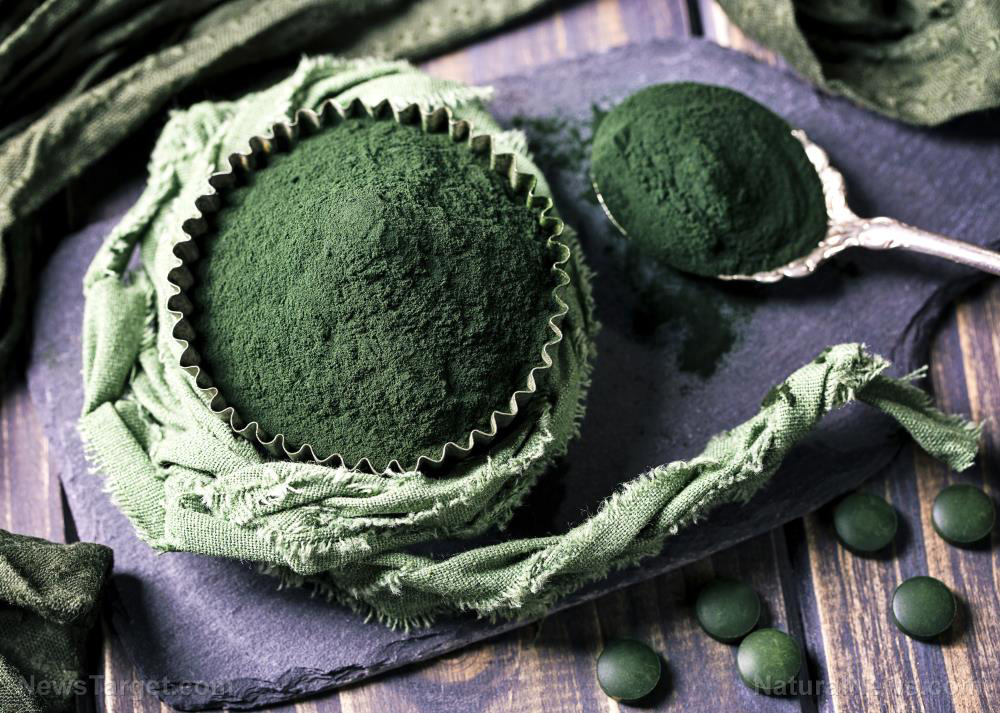
Advertisement
Spirulina, a blue-green algae, is a popular superfood. It’s usually taken as a dietary supplement. Spirulina has an incredible nutritional profile and offers many health benefits, such as promoting weight loss and improving gut health.
But what exactly is this tiny but potent green superfood?
Spirulina is full of protein and different vitamins, making it a great dietary supplement for vegetarians or those on vegan diets.
Studies have found that spirulina has antioxidant and inflammation-fighting properties. It also helps strengthen your immune system.
One tablespoon (7-gram) of dried spirulina contains:
- 95 milligrams (mg) of potassium
- 73 mg of sodium
- 14 mg of magnesium
- 8 mg of calcium
- 8 mg of phosphorus
- 2 mg of iron
- 0.7 mg of vitamin C
Spirulina also contains traces of folate, niacin, riboflavin, thiamine and vitamins A, B6 and K.
Spirulina boosts gut health
Animal studies suggest that spirulina, which can easily be digested, may help improve gut health.
In a 2017 study published in the journal Nutrients, researchers found that consuming spirulina helps preserve healthy gut bacteria in older mice.
Take note that spirulina doesn’t contain a lot of fiber. When adding spirulina to your diet, increase your intake of fiber-rich and gut-healthy foods, such as:
- Barley
- Beans
- Berries
- Broccoli
- Carrots
- Melon
- Nuts
- Oats
- Oranges
- Peas
- Pears
- Pulses
- Rye
- Seeds
- Whole grain bread
Spirulina promotes weight loss
If you want to lose weight, spirulina is the food for you. Since spirulina is nutrient-rich, you can incorporate it into a low-calorie diet.
Results from a 2016 double-blind, placebo-controlled trial showed that spirulina can help individuals maintain a healthy weight.
For the study, researchers observed overweight participants who regularly consumed spirulina for three months. At the end of the study, the participants had improved body mass index (BMI).
Spirulina is good for diabetes management
In a 2018 review study published in the journal Diabetes, Metabolic Syndrome and Obesity: Targets and Therapy, scientists discovered that supplementing with spirulina results in a remarkable improvement in fasting blood glucose levels.
Individuals diagnosed with Type 1 and Type 2 diabetes often struggle with high fasting blood sugar. Regular intake of spirulina supplements may help them manage their condition.
While research suggests that spirulina can be used to improve diabetes symptoms, further research is needed to determine its effectivity.
Spirulina can help lower cholesterol
Cholesterol is “bad” fat in your blood that can cause heart disease.
In a 2016 systematic review and meta-analysis published in the journal Clinical Nutrition, scientists reported that supplementing with spirulina improves the level of blood lipids or fats in the blood.
Research showed that spirulina can significantly lower both total cholesterol and LDL (low-density lipoprotein) or “bad” cholesterol levels. At the same time, it can increase HDL (high-density lipoprotein) or “good” cholesterol levels.
These findings back the claim of a 2013 study that consuming a gram of spirulina daily can lower total cholesterol levels.
Spirulina may help control blood pressure
Just as spirulina helps lower cholesterol, studies have also found that it can be used to manage blood pressure.
In a small-scale study published in 2016, researchers noted that regular intake of spirulina for at least 3 months can help lower the blood pressure of overweight individuals with hypertension.
Spirulina helps prevent cardiovascular disease
High blood pressure and cholesterol levels are two risk factors for cardiovascular disease.
According to a review published in 2013, spirulina can help prevent heart disease because it can decrease blood cholesterol and has anti-inflammatory and antioxidative properties.
Considerations before taking spirulina
The United States Food and Drug Administration (FDA) doesn’t regulate spirulina, but it is well-tolerated by most individuals.
Although spirulina isn’t linked to adverse effects, it is best to consult your physician before taking this dietary supplement. Ask if spirulina will interact with the medications you are currently taking.
You can purchase spirulina in either powder or tablet form. If you buy spirulina powder, you can add it to smoothies or sprinkle it on salads or soups. Alternatively, you can use spirulina powder to make energy balls or add it to homemade fruit or vegetable juices.
Spirulina in tablet form can be taken as a dietary supplement. You can find dried spirulina and spirulina tablets in health food stores, online stores or drug stores.
Boost your digestion and improve your gut health by supplementing with spirulina, one of Mother Nature’s most potent superfoods.
Sources:
Advertisements







